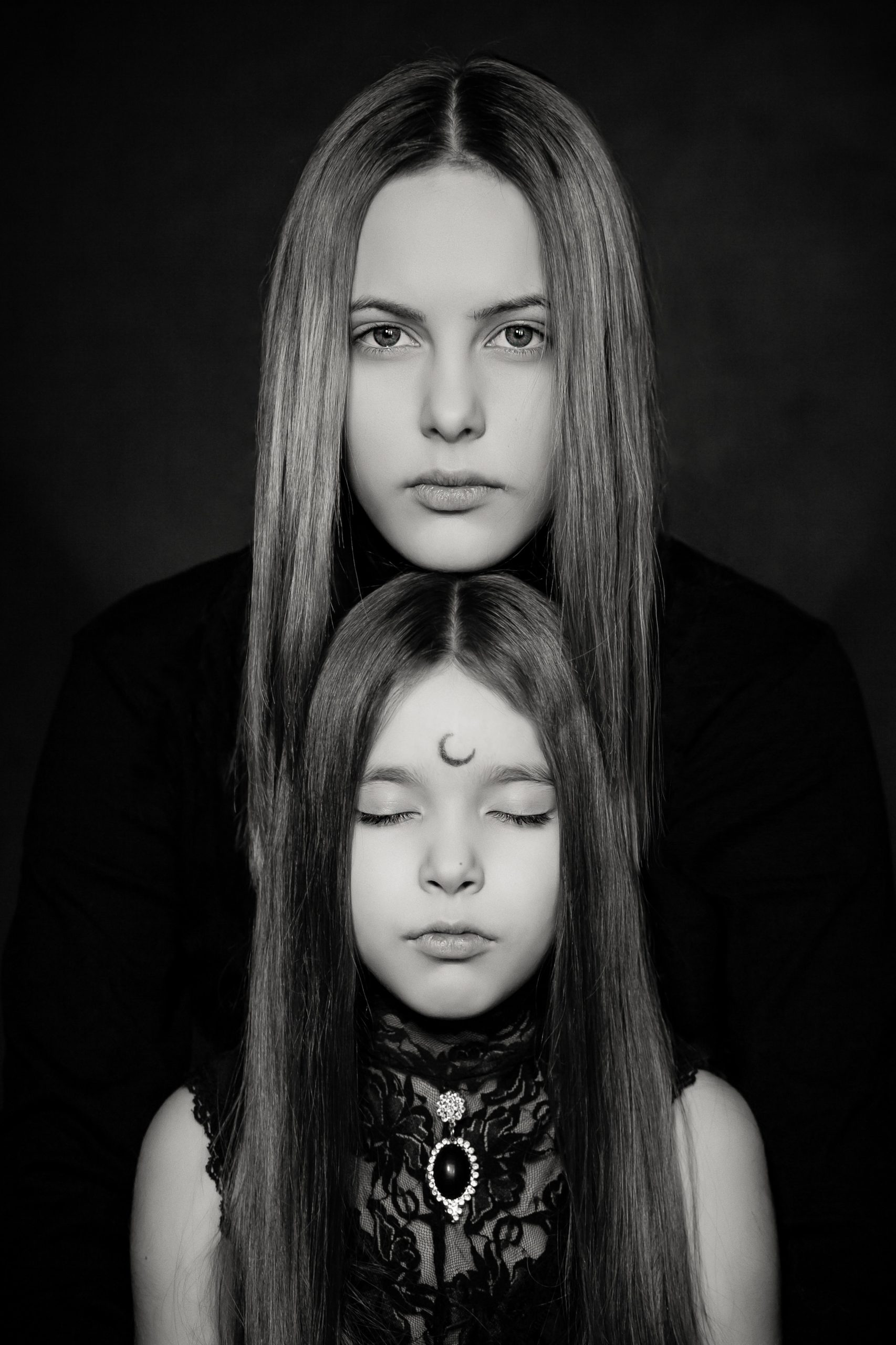There was a time in my life when I was confronted with a choice I wish upon no one: an opportunity to rise through the corporate ranks or retain my sanity.
Trigger warning: this might be an uncomfortable read involving mental illness.

I was a bright-eyed twenty-something in the corporate world, slogging away at a large Malaysian real estate developer. I received a promising job offer after two years in the company, one that would catapult my climb towards the corporate tower. Or so I thought.
It was a management role overseeing a team of three ladies, all significantly older than I was. There was a catch though — the role was in a completely new field, for which I had no prior experience.
Despite having excelled in my studies and garnered a fully-funded scholarship for university in Australia, I’ve never really been a goody-two-shoes. The streaks of purple in my hair; the four piercings in my right ear; and a nose ring on my left nostril were an inkling to that. I stuck out like a sore thumb at the company which consisted of majority Malay Muslims — a conservative culture where women cover up and don the headscarf. Qualifications aside, I wasn’t exactly the anticipated choice to lead a team of traditional Muslim women.
But I couldn’t deny that the challenge of pushing myself out of my comfort zone excited me. Opportunities like this were once in a lifetime, and I wasn’t about to miss out.
With a pen firmly in hand, I signed my soul to the corporate master.
I was hell-bent on making a good impression from the get-go. Aware of the negative assumptions about young managers — inexperienced and lacking knowledge — I was intent on proving them wrong.
During the first meeting with the team, we went through the sales projection numbers for the year. My phone buzzed on the table.
‘Mummy’ appeared on the screen.
“What could it be? She never calls during work hours.” I wondered.
I politely excused myself and answered the call at the empty meeting room next door. Through her heavy breaths and frenzied voice, I heard the words — “Daddy, hospital.”
My dad had been hospitalised for a severe manic episode. A symptom of his bipolar illness that had ravaged his life since he was a 30-year old scientist in Sydney, Australia.
I rushed to the psychiatric ward to find him restrained to the bed. It was a sight that will forever be etched in my memory. His eyes were wide in terror, flicking from side to side. His cheeks were sunken and hollow, peppered by an untamed beard. His parched lips imparted a toothless, voiceless howl.
I have never seen so much agony in a man.
The next few months were some of the most painful of my life. The frightening illness unveiled a side of my dad that I’d never known. His mind was lost in psychosis. The words that marched out of his mouth were a far cry from his logical, grounded self.
“The spies are here to get me,” he uttered one evening.
Thunder rumbled outside and shook the hospital walls. He dashed towards the counter for cover and yanked my arm to follow his lead.
“It’s the spies! They’ve planted bombs around the hospital!”
I knew then that it was going to be a long, uphill battle towards recovery for our small family.
My new job was a baptism of fire. High-pressured, fast-paced, long hours — it was designed to crack those who were deemed less than worthy. I was managing two major real estate developments in Malaysia, and was responsible for bringing in MYR500 million (approximately USD120 million) worth of annual revenue. My regular 9 to 6 were filled with endless meetings, sometimes three overlapping meetings. It was only after working hours that I was able to make a dent in my pile of responsibilities — reviewing marketing collaterals, analysing spend data, and designing websites. Bringing them home became a norm. I found myself working 60-hour weeks just to keep up. It’s no wonder Malaysian work-life balance is among the worst in the world. Kuala Lumpur, the capital of Malaysia, consistently ranks as one of the most overworked cities in the world. In 2020, it ranked fourth behind Hong Kong, Singapore, and Seoul. Asian cities are notorious for burnouts.
After the long days at work, I would rush to the hospital to visit my dad. The lonely passageway dimly lit with florescent lights faithfully greeted me every evening. A strange sense of solace washed over me as I walked past the drably-painted blue walls covered with artworks of oddly shaped bright flowers. The silence of the hallway was broken by echoes of my footsteps and the occasional screams of patients. It became our home for the next few months.
My dad became increasingly dependent on the family and required our company almost 24/7. His paranoid thoughts made him distrustful to strangers, so much so that he refused to eat food served by the nurses, convinced that it was poisoned. My mom was on breakfast and lunch duty, while my brother and I took turns for dinner duty.
I used to cherish the 30-minute drive from the office to the hospital because it was the only respite I had from all the obligations. During those quiet moments, I wasn’t a manager shouldering half a billion worth of sales or a compassionate caregiver to my dad. It was during those moments I let tears roll down my face. I was just another human being trying to make it through the day.
The combination of a stressful job and being a caregiver soon became too overwhelming.
I started losing sleep, lying awake in bed for hours, my mind was abuzz with thoughts, occasionally crying myself to sleep. Exhaustion and frustration became constant companions.
On the nights I did doze off, I would be awakened around 3 am. My heart pounded in my chest, my breaths were shallow and rapid, my pyjamas were drenched in sweat. Like Pavlov’s dog, I soon came to fear 3 am. It was the monster under my bed and I became an anxious wreck.
A question soon preoccupied me:
Was I falling into the same mental illness that gripped my dad?
Mental illness is hereditary. Children with mentally ill parents have up to a 50% chance of developing a mental illness too. Experts believe mental illnesses are linked to abnormalities in nerve cell circuits or pathways that connect particular brain regions. This can be passed down genetically to children. When combined with environmental triggers such as stress and psychological factors such as trauma, the chances go up drastically.
I knew the next decision I made would determine the course of the rest of my life. Without a doubt, my priority had to be my family. I realised work was just a means to an end. For a straight-A student who didn’t have much experience in failure, slowing down my professional life felt like giving up. Like I wasn’t strong enough, or smart enough, or didn’t work hard enough.
But here’s the thing. I’ve seen the suffering and havoc that mental illness can wreak on the patient and the family, to not make that choice.
When faced with the option of continuing on this career trajectory or giving it all up to retain my sanity, I chose the latter.
I had to make peace with the fact that I was letting go of a stable corporate career, giving up good pay and even better benefits. Most people who heard about my decision to quit corporate gasped in disbelief. Why would you let go of a secure job especially in the middle of a pandemic?
I was convinced that there was something more to all this pain, anxiety, and struggle. Their existence in this journey called life had an underlying purpose: to teach me something.
I let my instincts and inquisitive fire reign free, exploring myself with curiosity like a child discovering a butterfly for the first time. Through that, I found my ikigai.

Ikigai is a Japanese philosophy that means something that gives a person a sense of purpose. Similar to the French concept of raison d’être or reason for living. The concept of ikigai is best explained by the ikigai diagram, which includes four overlapping spheres of;
- What you love
- What you are good at
- What you can get paid for
- What the world needs
Mental health is my ikigai. I have loved psychology since I was a child, my library of psychology books has been a testament to it. Am I good at it? Friends and colleagues have described me as being an empathetic listener with high emotional intelligence, skills essential in the mental health profession. Could I be paid for it? Yes, the mental health industry is booming, even more so after the pandemic and endless lockdowns. Lastly, but most importantly, is it what the world needs? Indeed, statistics have shown that there is a shortage of mental health practitioners worldwide.
Ken Mogi, a Tokyo-based neuroscientist and author of Awakening Your Ikigai, broken down the steps to finding ikigai to five pillars:
- Starting small
- Accepting yourself
- Harmony and sustainability with the world
- Finding joy in small things
- Being in the here and now
Despite the crazy work schedule, I knew that I had to start transitioning out of corporate drudgery into a job that was aligned with my ikigai. With this end in sight, I started volunteering at a mental health NGO during weekends. The work we did helped provide affordable mental health access to the underprivileged community in Malaysia. I offered my strategy and marketing skills to help them fundraise. We rallied a few other mental health NGOs and established Malaysia’s first Community Mental Health Fund. Its purpose was to train volunteers with Mental Health First Aid to combat the parallel pandemic of mental health that was taking the world by storm. The effort gained traction over multiple newspapers, media channels, and websites.
The sheer joy I got from helping others made it clear that I was onto something.
I realised that there was real value in marrying my corporate knowledge with my passion for mental health. There was a lack of corporate know-how in the Malaysian mental health industry, as most people that pursue a career in mental health come from clinical backgrounds. I managed to find the cross-section between my skills, my passion, my work, and my purpose — birthing life into my ikigai.
Looking back at the past three years, the evolution of the burnt-out corporate girl into a soon-to-be psychology scholar still astounds me. The form-fitting corporate dresses now replaced with loose flowing skirts are only an outward manifestation of it. The real transformation happened within.
“I’ll be starting my new job soon,” I excitedly announced to my dad over lunch.
With a tender smile on his face, he replied “That’s wonderful. You’re going to do great.”
His assurance brought a wave of comfort, that it was indeed the right way forward.
This article was originally published on Medium.




